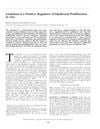 December 2018 in “Journal of Medicinal and Aromatic Plant Sciences”
December 2018 in “Journal of Medicinal and Aromatic Plant Sciences” Some plants like Eclipta alba, Nardostachys jatamansi, and Rumex japonicus may help hair growth.
November 2022 in “Journal of Investigative Dermatology” Occipital hair follicles in male pattern baldness respond uniquely to testosterone, not androgen-insensitive.
 64 citations,
March 2005 in “Journal of Investigative Dermatology”
64 citations,
March 2005 in “Journal of Investigative Dermatology” Brain-Derived Neurotrophic Factor (BDNF) slows down hair growth and promotes hair follicle regression.
 58 citations,
October 2016 in “Journal of Investigative Dermatology”
58 citations,
October 2016 in “Journal of Investigative Dermatology” Activating Nrf2 protects human hair follicles from oxidative stress and helps prevent hair growth inhibition.
 28 citations,
February 1999 in “Journal of Investigative Dermatology”
28 citations,
February 1999 in “Journal of Investigative Dermatology” Urokinase, a type of protein, helps skin cells multiply faster, especially in newborn mice.
 July 2022 in “Journal of Investigative Dermatology”
July 2022 in “Journal of Investigative Dermatology” IL-15 helps maintain hair growth and protects the immune status of hair follicles.
 8 citations,
June 2022 in “Cosmetics”
8 citations,
June 2022 in “Cosmetics” Coffee berry extract may help slow skin aging and prevent hair loss.
 98 citations,
December 2008 in “Journal of Investigative Dermatology”
98 citations,
December 2008 in “Journal of Investigative Dermatology” Prolactin affects hair growth and skin conditions, and could be a target for new skin disease treatments.
 32 citations,
March 2021 in “Journal of endocrinological investigation”
32 citations,
March 2021 in “Journal of endocrinological investigation” Thyroid hormones are important for skin health and changes in them can affect conditions like hair loss and eczema.
 9 citations,
July 2020 in “Experimental Dermatology”
9 citations,
July 2020 in “Experimental Dermatology” Topical L-thyroxine may help with wound healing and hair growth but should be used short-term due to potential risks.
 8 citations,
April 2020 in “Journal of Ethnopharmacology”
8 citations,
April 2020 in “Journal of Ethnopharmacology” Herbs might help with hair loss, but more research is needed to confirm their safety and effectiveness.
November 2022 in “Journal of Investigative Dermatology” Cell-based therapy using specific immune cells may help treat alopecia areata by promoting hair regrowth.
 October 2018 in “InTech eBooks”
October 2018 in “InTech eBooks” The gene Foxn1 is important for hair growth, and understanding it may lead to new alopecia treatments.
 39 citations,
May 2010 in “Stem Cells”
39 citations,
May 2010 in “Stem Cells” Ephrins slow down skin and hair follicle cell growth.
 53 citations,
January 2009 in “Journal of Investigative Dermatology”
53 citations,
January 2009 in “Journal of Investigative Dermatology” UVB radiation harms hair growth and health, causing cell death and other changes in human hair follicles.
 4 citations,
April 2021 in “Experimental Dermatology”
4 citations,
April 2021 in “Experimental Dermatology” Antibiotics might affect hair growth by changing the bacteria in hair follicles.
 52 citations,
September 2018 in “International Journal of Molecular Sciences”
52 citations,
September 2018 in “International Journal of Molecular Sciences” Ginseng and its compounds may help hair growth and prevent hair loss, but more human trials are needed to confirm this.
 11 citations,
September 2012 in “Journal of Nanjing Medical University”
11 citations,
September 2012 in “Journal of Nanjing Medical University” Cyclosporine A was found to increase hair growth in mouse whisker follicles.
 174 citations,
April 2005 in “The American journal of pathology (Print)”
174 citations,
April 2005 in “The American journal of pathology (Print)” Capsaicin, found in chili peppers, can slow down hair growth by affecting skin cells and hair follicles.
 38 citations,
April 2016 in “Experimental Dermatology”
38 citations,
April 2016 in “Experimental Dermatology” The document concludes that understanding hair follicle cell cycles is crucial for hair growth and alopecia research, and recommends specific techniques and future research directions.
 September 2023 in “Journal of microbiology and biotechnology”
September 2023 in “Journal of microbiology and biotechnology” A type of collagen helps hair grow by boosting cell growth and activating a specific hair growth pathway.
 September 2004 in “Experimental dermatology”
September 2004 in “Experimental dermatology” Melatonin directly affects mouse hair follicles and may influence hair growth.
 26 citations,
October 2007 in “Experimental Dermatology”
26 citations,
October 2007 in “Experimental Dermatology” L-Carnitine-L-tartrate may help hair grow and prevent hair loss.
 105 citations,
May 2011 in “The journal of investigative dermatology/Journal of investigative dermatology”
105 citations,
May 2011 in “The journal of investigative dermatology/Journal of investigative dermatology” Activating TRPV3 stops human hair growth.
 49 citations,
November 2014 in “Journal of Medicinal Food”
49 citations,
November 2014 in “Journal of Medicinal Food” Red Ginseng Extract may help human hair grow by activating growth pathways and blocking negative effects of certain hormones.
 16 citations,
November 2009 in “Experimental dermatology”
16 citations,
November 2009 in “Experimental dermatology” Ionizing radiation damages human hair follicles by stopping cell growth, causing cell death, disrupting color, and increasing stress and damage markers.
 13 citations,
December 2017 in “The journal of investigative dermatology/Journal of investigative dermatology”
13 citations,
December 2017 in “The journal of investigative dermatology/Journal of investigative dermatology” Nicotinamide applied to the scalp can slow down hair growth.
 9 citations,
April 2006 in “American Journal of Pathology”
9 citations,
April 2006 in “American Journal of Pathology” SGK3 is essential for proper hair growth and health.
 92 citations,
June 2005 in “Journal of Investigative Dermatology”
92 citations,
June 2005 in “Journal of Investigative Dermatology” All-trans retinoic acid causes hair loss by increasing TGF-β2 in hair follicle cells.
 72 citations,
October 2009 in “The FASEB journal”
72 citations,
October 2009 in “The FASEB journal” TRH stimulates human hair growth and extends the hair growth phase.




























